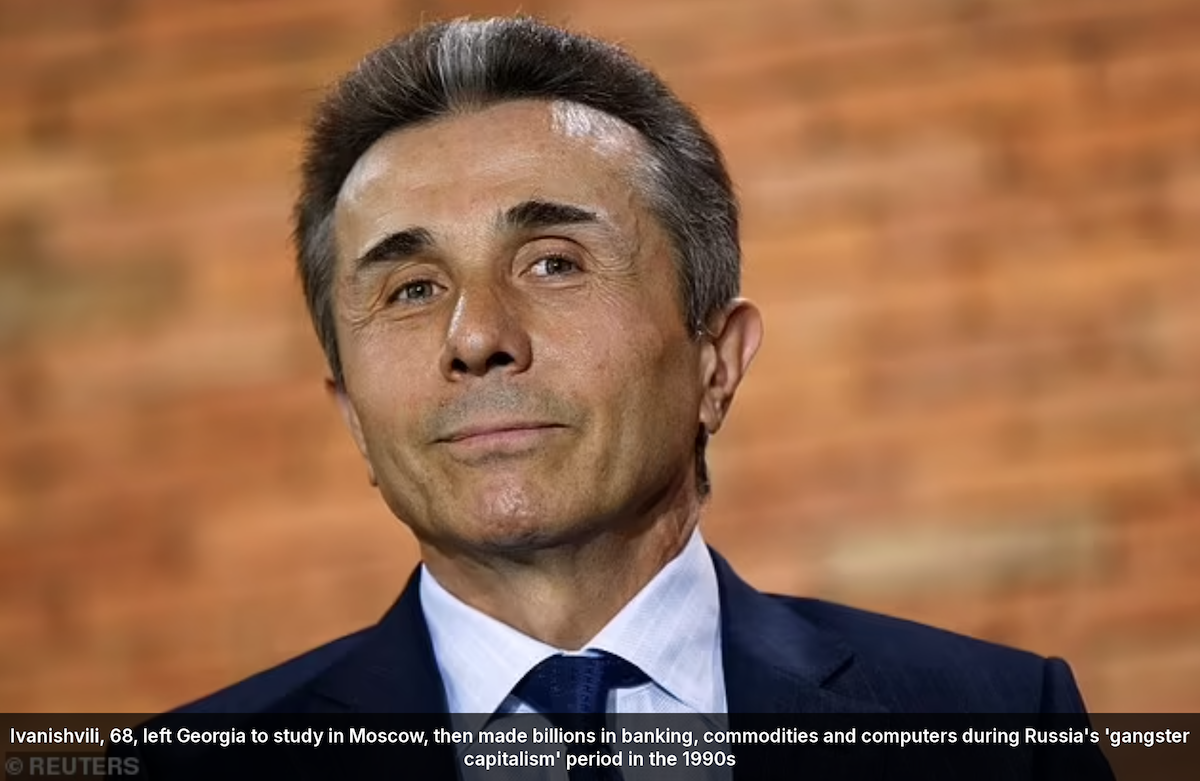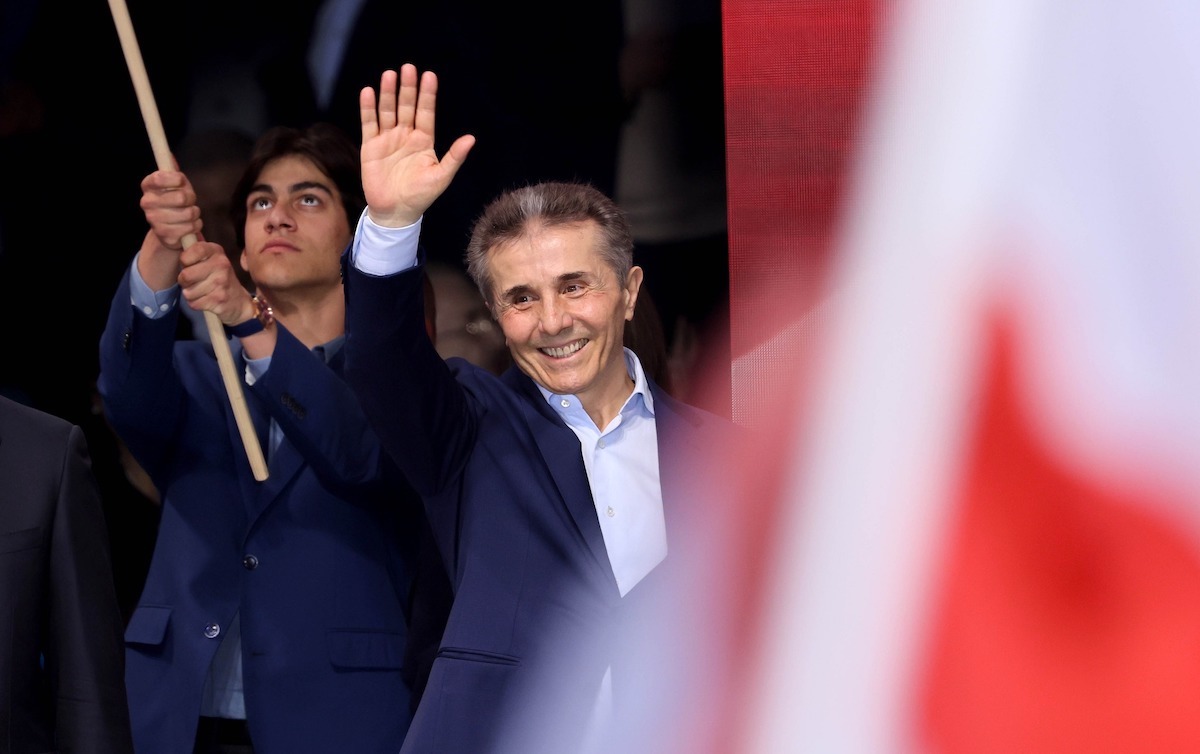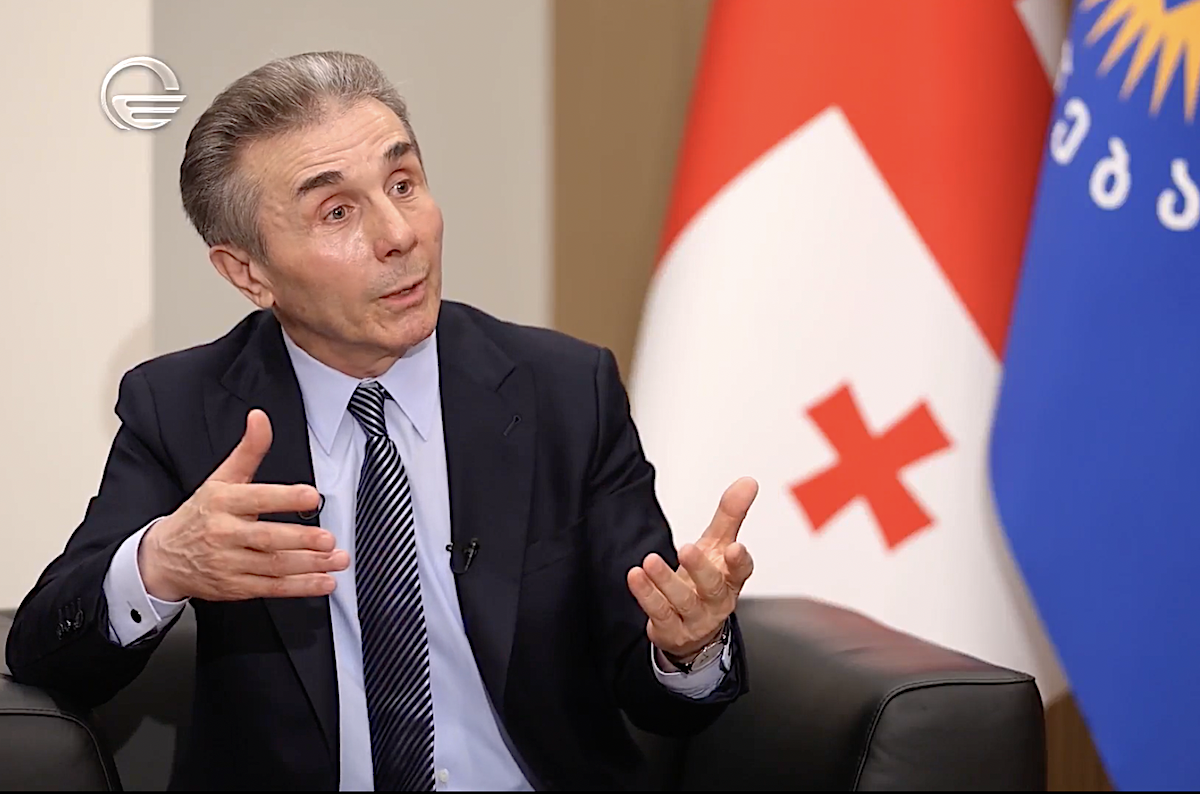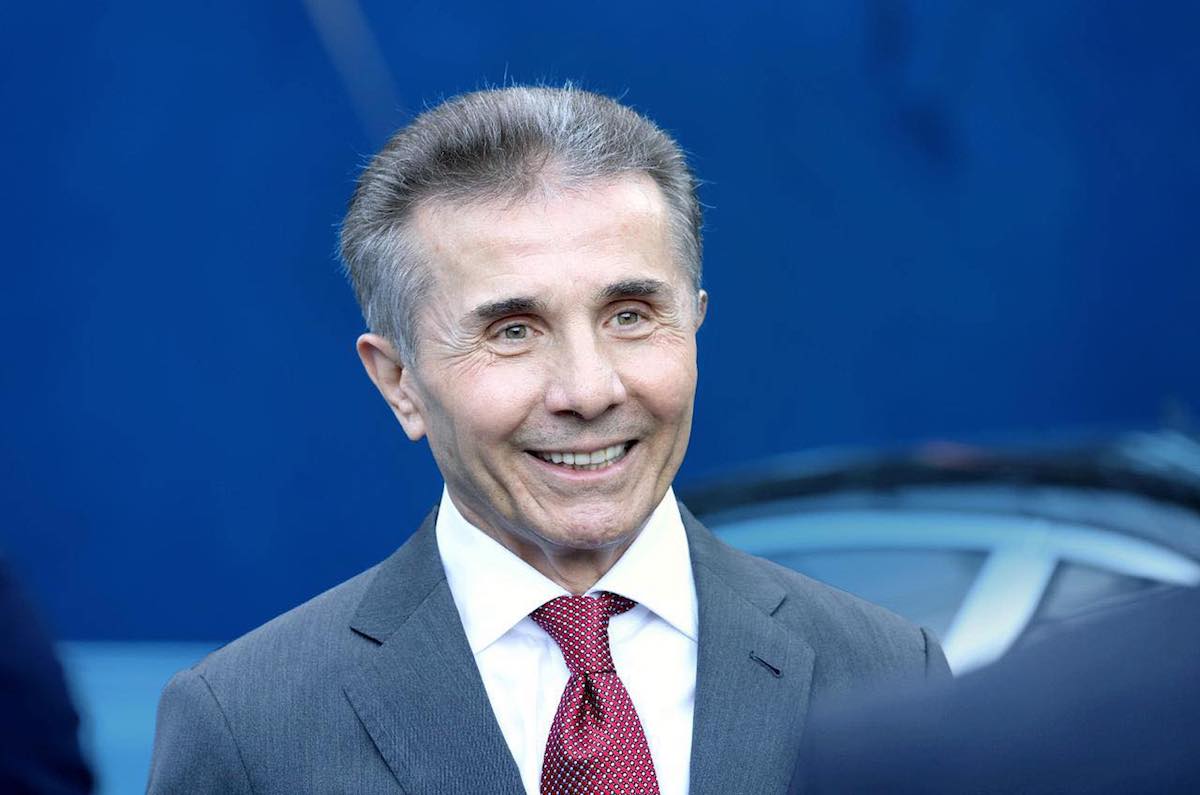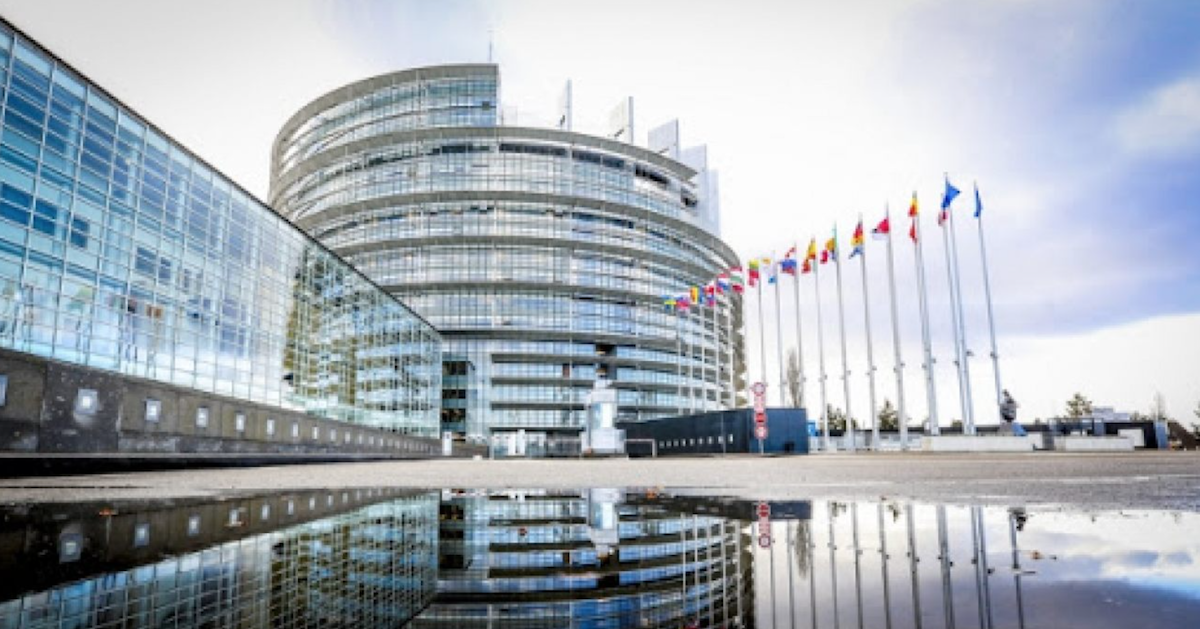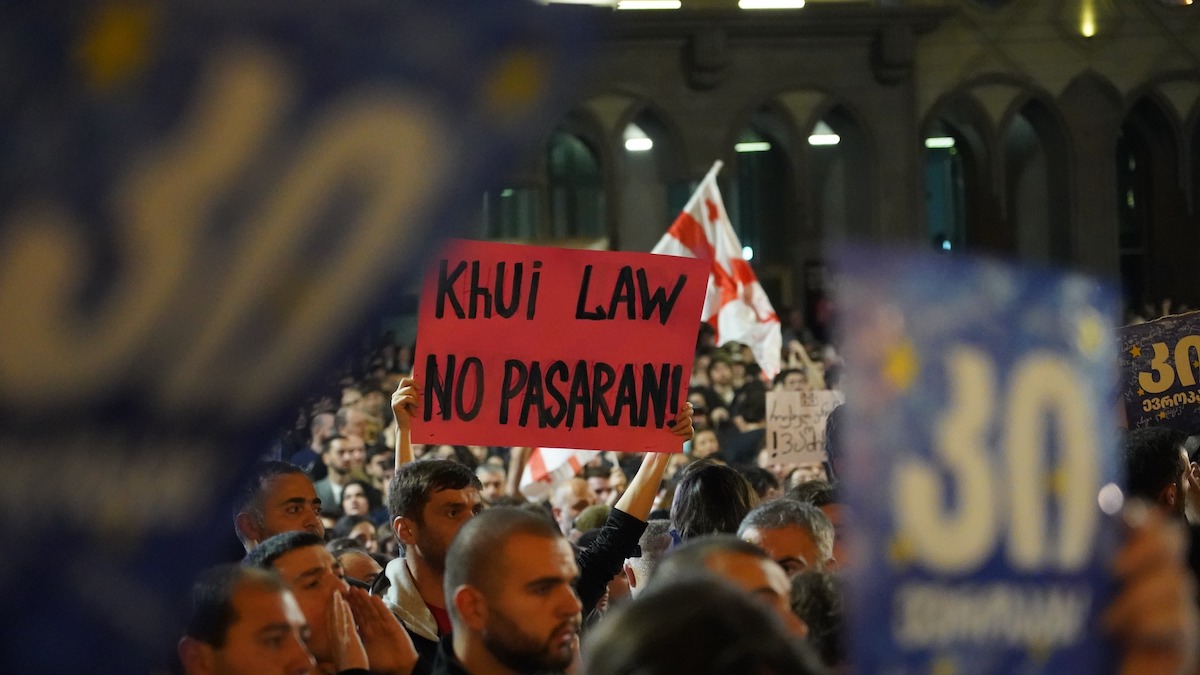"Ivanishvili is bargaining with the West at the cost of Georgia’s future" – interview with the former financier of the Georgian oligarch
Bachiashvili, Ivanishvili’s former personal financier
“Bidzina Ivanishvili’s charity [leader of Georgia’s ruling party and oligarch] is a big lie; he got rich by robbing Russian pensioners,” said Giorgi Bachiashvili, former head of the co-investment fund and one of Ivanishvili’s closest associates, who managed his finances for 10 years, in an interview with TV channel Pirveli.
The interview aired late on October 25, just ahead of Georgia’s crucial parliamentary elections. Polling stations across the country opened at 8 a.m. today, October 26.
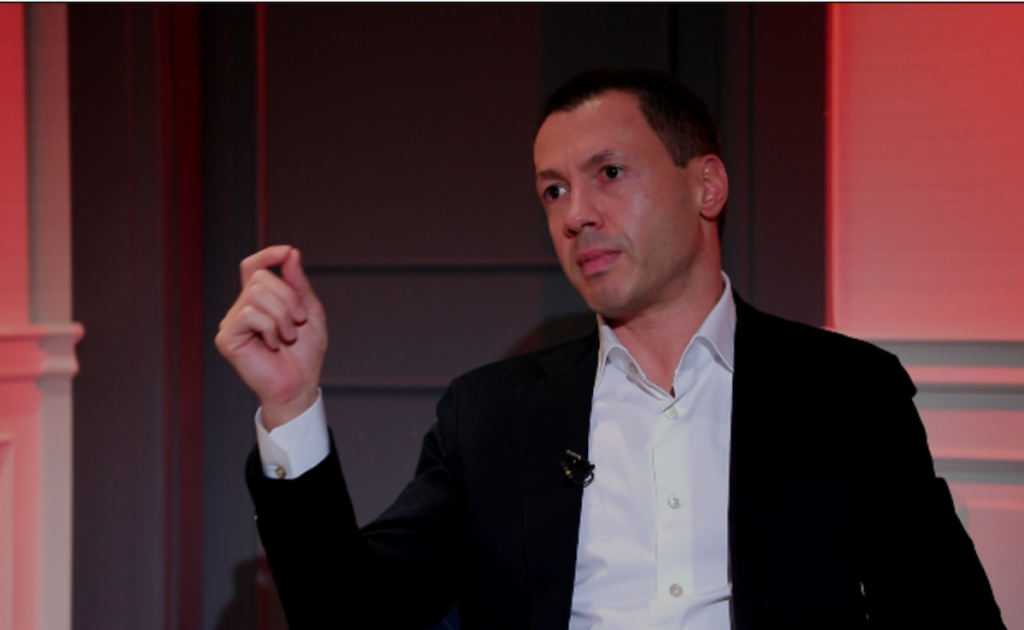
Giorgi Bachiashvili detailed when and why his relationship with Ivanishvili deteriorated.
The former head of the co-investment fund said the fallout began after he openly condemned Russia’s aggression in Ukraine.
“Also, I disagreed with the madness and foolishness Ivanishvili promoted, claiming that external forces were involved in his financial dispute with Switzerland’s Credit Suisse. That’s when he got angry,” Bachiashvili said.
He believes that the parliamentary majority of Georgian Dream passed the offshore law in April 2024 at Ivanishvili’s request, allowing the oligarch to avoid property taxes. The law exempts all asset transfers from offshore accounts to Georgia from taxation until 2028.
“Bidzina Ivanishvili is, of course, bargaining with the West, using our country’s future as leverage in these negotiations,” Bachiashvili stated.
Ivanishvili vs. Bachiashvili
Giorgi Bachiashvili is facing a legal case, accused of embezzling cryptocurrency belonging to Bidzina Ivanishvili, the founder of the Georgian Dream party and a prominent oligarch.
According to the prosecution, the investigation began in 2017. The authorities allege that Bachiashvili transferred only $536,900 to the investor in exchange for full investment profits while unlawfully appropriating 8,253.13 bitcoins belonging to the investor. During his possession, their value reached $39,215,820.
On July 6, 2023, the former head of the Co-Investment Fund posted bail of 2.5 million lari (around $1 million) as a preventive measure and was banned from leaving the country until the investigation concludes. Bachiashvili denies any wrongdoing and says he doesn’t understand why he is involved in the case.
What did Giorgi Bachiashvili reveal?
On the “Party of Global War”
“I was in Ivanishvili’s circle as a very bad example of a person with an opinion. When the war in Ukraine started, I was the only one in his circle who actively condemned Russia’s aggression and supported Ukraine on social media. Ivanishvili could not tolerate this.
He began to portray the West as a monster to change Georgia’s foreign policy direction, talking about the ‘influence of external forces,’ a ‘party of global war,’ and similar nonsense right when the Russia-Ukraine military confrontation began. I did not participate in this and did not agree with it.
Does he believe what he says? Nonsense. He needs this narrative to present himself as a tough guy standing up against this so-called global war party, a monster in the West that is supposedly pressuring him.”
If they are such brave and tough individuals standing up against the whole world, they should have the courage to name at least one person representing this ‘party of global war’ who caused them to change the country’s foreign policy. No prime minister or leader of a sovereign nation greets our government anymore.”
“Ivanishvili is bargaining with the West in an attempt to save his money”
“This is our reality: Ivanishvili has been bargaining his whole life. His main objective today is to maintain his influence and control over Georgia at any cost.
Bidzina Ivanishvili is indeed negotiating with the West, using the country’s future as leverage. He is negotiating to recover his money, and he doesn’t particularly care about the people. Ivanishvili has never prioritized the country’s interests over his own.
He entered politics to solve his personal problems. He openly states that the then-government hated and distrusted him because he stopped financing them.
Ivanishvili did not come to politics out of love for the people—this is a big lie. I even laughed when he spoke about spirituality and faith in a recent interview. Ivanishvili and spirituality or faith are contradictory concepts.”
“Ivanishvili’s charity is a big lie”
“Ivanishvili often claims that he ‘entered Georgian politics with clean hands’ and that he is ‘a philanthropist and a good businessman,’ and so on.
In reality, here’s what he did before that. Ivanishvili created a bank in Russia called ‘Russian Credit,’ then used the money of depositors, primarily Russian pensioners, to buy numerous assets that made him a billionaire.
In 1998, he told those people, ‘I’m sorry, I can’t return your money right now, but I’ll pay you back in 20 years.’ And he did—returning them devalued rubles by that time, while keeping all the purchased assets for himself.
In any normal state, this would be considered a crime, both then and now.
This is the ‘first earned million’ that Ivanishvili is so reluctant to discuss and has gone to great lengths to conceal.
The Georgian public deserves to know the truth about whom they are voting for.
All his charitable acts are intertwined with lies. He has crafted a legend around himself as the greatest philanthropist. In reality, people need to understand that this is just a facade; he is no benefactor.
This is a person who has gone mad with power. The more time passes, the more he craves it.”
The story of Ivanishvili’s missing funds at Credit Suisse
“I was the one who discovered the embezzlement of funds at the Swiss bank Credit Suisse. At least, the funds belonging to Ivanishvili. I don’t know how the entire chain was uncovered at Credit Suisse.
-
What is the essence of the dispute between Bidzina Ivanishvili and Credit Suisse?
The dispute between Bidzina Ivanishvili and Credit Suisse began in 2011 when Ivanishvili was a private banking client of the bank. During this period, it was revealed that one of the bank’s managers, Patrice Lescudron, was embezzling funds from confidential accounts, including those of Ivanishvili and his Russian oligarch business partner, Vitaly Malkin.
The Swiss regulator, Finma, published a report indicating that Credit Suisse failed to take appropriate action despite numerous warnings and suspicious circumstances. Ivanishvili accused Credit Suisse of failing to protect his investments and demanded $800 million from the bank, claiming that was the amount he lost due to the actions of the former manager, Patrice Lescudron. The trust division of Credit Suisse argued that Ivanishvili’s claim was inflated and filed a lawsuit to dismiss his case.
Lescudron was convicted of fraud in 2018 and spent two years in pretrial detention before being released in 2019. In July 2020, he took his own life after admitting that he had secretly transferred funds from other clients’ accounts to cover losses suffered by affected clients during the 2008 financial crisis due to his poor investment decisions.
In March 2022, The Financial Times reported that a Bermuda court ruled in favor of Bidzina Ivanishvili in his legal dispute against Credit Suisse, awarding him over $500 million (according to Bloomberg, the amount was $607 million).
The next phase of the conflict between Ivanishvili and Credit Suisse emerged following Russia’s invasion of Ukraine. Ivanishvili initiated several lawsuits against the bank, one concerning delays in transactions that caused him financial losses. Reports emerged that the bank had frozen his account, which held £2.7 billion, citing suspicions that the funds might be of Russian origin. In September 2022, Ivanishvili stated in a Singapore court that Credit Suisse had failed to take necessary actions, resulting in a loss of $1.27 billion. In February 2023, Bloomberg reported that Credit Suisse Group AG had paid billionaire Bidzina Ivanishvili $210 million as part of the protracted legal dispute.
I had all the details of the case and was a key witness in both proceedings, in Bermuda and Singapore.
I handled the most significant financial case of Bidzina Ivanishvili’s life. All the points he raised were ruled in his favor by the court.
However, I did not agree with his absurd claim that external forces were involved in the Credit Suisse case.
If there were any forces at play, they were on Ivanishvili’s side, as we won every single case. Credit Suisse is one of the largest financial institutions in the world. They have an army of lawyers, and they know better than anyone how to prolong a case.”
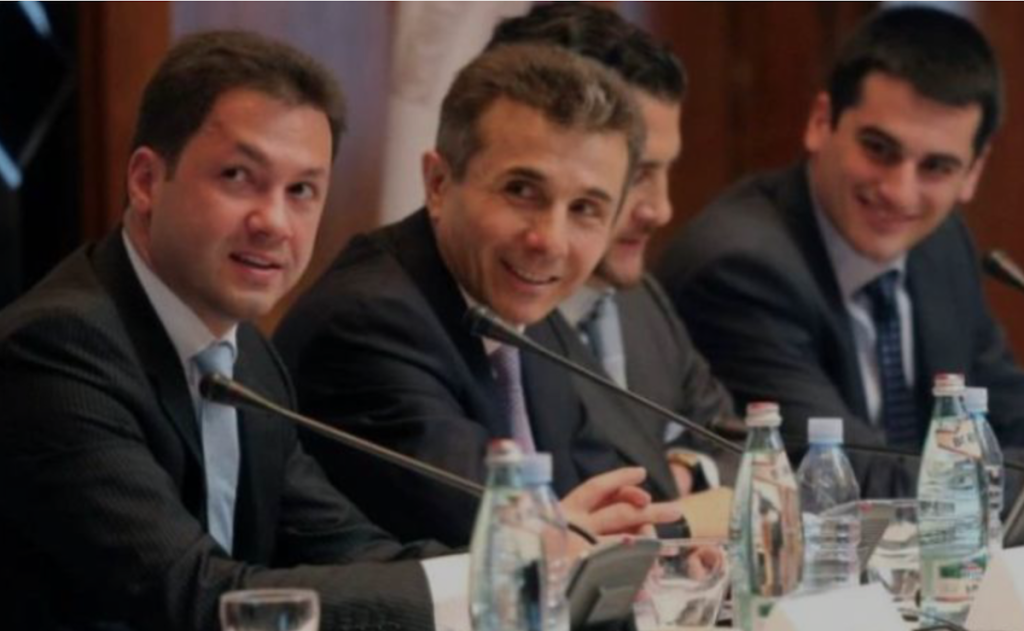
“He stole about $400 million using the same scheme, taking advantage of the offshore law”
“The offshore law was passed in Georgia at a time when everyone was focused on the uproar surrounding the ‘foreign agents’ law. In Russian, we refer to such situations as ‘under the noise,’ meaning he pushed it through unnoticed.
This is why it was done.
Back in 2022, Ivanishvili mentioned in his speech that he was facing obstacles in bringing his collection of paintings. Ultimately, he imported a collection valued at around $1 billion into Georgia and did not want to pay VAT on either this property or the profits from it.
The offshore law consists of three components:
1. Assets transferred from offshore to Georgia will be exempt from profit tax. This means that if he sells these assets for a profit, he will not have to pay taxes on that profit. If he were to sell his billion-dollar collection for $2 billion, the $200 million that should have gone to the budget would effectively be taken from the pockets of the Georgian people.
2. Customs duties and VAT on property from offshore accounts are eliminated—this amounts to around $180 million, which he also took from the country’s coffers.
3. The annual property tax is 1% of the value. This is the tax that each of us pays on our apartments and other properties, and every company pays on its assets. If the property comes from offshore, the law provides an exemption, so this tax is not paid. In the case of Ivanishvili’s paintings, this amounts to $10 million a year that does not reach the pockets of the Georgian people.
So, with just this one operation, he stole about $400 million from the state.
Recently, he was described as a great philanthropist for purchasing an ancient manuscript by Ivan Zosime at auction and donating it to a museum. He aimed to influence the faithful, hoping they would give him their votes during the elections.
At the same time, this “philanthropist” has stolen billions of lari from his own country.
“I helped him in 2012 because I believed it was time for a change in power in Georgia. Now, that time has come again”
“Now, for the first time, I will share a story publicly.
In 2012 [when Ivanishvili and his party, Georgian Dream, came to power, replacing the National Movement and then-President Mikheil Saakashvili – JAMnews], I didn’t know Bidzina Ivanishvili personally. However, I provided him with crucial assistance during a critical moment when a temporary manager was appointed to his bank, Cartu, and all assets were frozen.
At that time, he needed funds for his election campaign and had no access to his money. I helped him at personal risk, enabling him to fully finance the elections.
I had a strong civic stance back then and believed that Georgia needed a change in leadership, so I assisted him without asking for anything in return. Georgia was in need of change.
Today, my civic position remains that we must change the government in Georgia through democratic means. Remaining silent in such times is a betrayal of oneself and the country, and I could never forgive myself for that.”
“In 2022, Ivanishvili realized his authoritarian rule was incompatible with EU membership”
“In 2022, Ivanishvili realized that his authoritarian style of governance was incompatible with Georgia’s EU membership aspirations. He decided to demonize the West and the European Union as a way out.”
Giorgi Bachiashvili, Ivanishvili’s former personal financier, told the TV channel Pirveli that the information he provided is based on his 14 years of experience working with Ivanishvili and his organizations, including documents, personal conversations, analyses, and public information. Bachiashvili believes that the views expressed in this interview are important for the national interests of the country.










